Diet for a strong back
To prevent and fight backaches it's important to include the necessary nutrients in your daily diet. Many minerals and vitamins not only ensure your overall health, but may help to prevent back trouble.

+ Although backaches are caused by many factors, it's important that you eat a healthy, balanced diet. On the other hand, keeping correct posture, losing excess weight and building up your muscle mass are other preventative lifestyle habits you should incorporate, because they improve your over all health.
Nutritionally, there are a number of different foods you can eat that carry essential vitamins and minerals to keep your back and spinal column healthy. If you eat a diet low in calcium and protein with very few fresh vegetables and instead eat refined carbohydrates, it's important that you change your eating habits. To maintain your back's health and your overall health you should adopt a diet rich in fruits and fresh vegetables, avoiding animal fat, sugar, salt, alcohol, tea and coffee.
NOTE
You should always consult your doctor before changing your diet.
ANTIOXIDANTS
Sweet potatoes, garlic, oranges, tomatoes and berries are foods rich in antioxidants that help to reduce the free radicals that destroy joint cartilage.
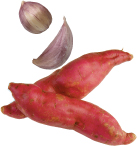
VITAMINS AND MINERALS
Symptoms of vitamin and mineral deficiency can include back pain, low blood circulation in your back, neck tension and overall stiffness. To avoid or to stop these side effects, it's important to eat the correct amount of nutrients that we've listed in the following guide.
Vitamin A
Necessary to keep the bones healthy, to maintain mucous linings and skin cells rejuvenated, it's also an important vitamin for the tendons and muscle tissues. It comes from two natural sources: retinal vitamin A comes from animal sources whereas beta-carotene vitamin A comes from plant sources. Beta-carotene is often referred to as provitamin A. Beta-carotene is a powerful antioxidant and immune system booster. When you have a vitamin A deficiency it's more probable that you'll suffer from joint pain, because the bones and tissues have difficulty in regenerating. It is found in grains, fruit, dried fruits, vegetables, beans, oils, meats and fish.
HEALTHY BEANS
For your body to correctly digest beans they should be cooked well until very tender.
They can be accompanied by vegetables and spices such as carrots, leeks, onion, bay leaf, cardamom, garlic and coriander leaf. You should avoid eating beans with bread and/or animal derived fats. It's most recommended preparing beans with brown rice or whole pastas.

VEGETARIAN ALTERNATIVES
Dried fruits and nuts are very rich in calcium and can be used to substitute milk for people who are lactose intolerant or on a vegan diet. Eating dried fruits and nuts is a great way to maintain healthy bones and to prevent osteoporosis. For children, eating dried fruits and nuts can help to reinforce bones and to accompany proper growth. Some calcium rich options include almonds (240 mg for each 3½ oz/100 g), hazelnuts (140 mg for each 3½ oz/100 g) and pistachios (110 mg for each 3½ oz/100 g).
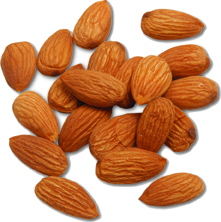
SEAWEED
Ounce for ounce, seaweed is higher in vitamins and minerals than any other class of food. In addition to its high iron content, seaweed is a superior source of calcium, iodine and phosphorus and an excellent source of vitamins A, B, C and E. Many types of seaweed, such as nori, are also high in protein.
ALGAE SAUCE
Soak 2 tablespoonfuls of hiziki seaweed for 15 minutes. Drain and save the water. Rinse the seaweed. Marinate with 2 medium sized grated carrots, 3 teaspoons of sesame oil for 10 minutes. Add 2 tablespoonfuls of soy sauce, and blend in a blender until it has the consistency of a sauce. Add the necessary amount of the water used to soak the seaweed. This sauce can be used to accompany grains (rice, millet) or spaghetti.
Vitamin B 6
Vitamin B 6 , also known as pyridoxine, is part of the B group vitamins, is water-soluble and is required for both mental and physical health. It is an important vitamin for the immune system. It supports metabolism, especially proteins. It helps to balance hormones and breaks down fats and carbohydrates. It helps to prevent stress and muscular cramps, which is why it is good to prevent backaches. It helps to prevent extreme tiredness and muscular cramps. It is found in sunflower seeds, dried fruits, bananas, soy beans, nuts among other foods.
Vitamin B 12
Known as cyanocobalamin, cobolamin and also known as the energy vitamin. Cobolamin is needed in the manufacture and the maintenance of red blood cells and it stimulates appetite, promotes growth and releases energy.
Found in meat-derived foods and some vegetables. Meat, chicken, fish, eggs, dairy products, seaweed, mushrooms, and brewer's yeast.
Vitamin C
Vitamin C also known as ascorbic acid together with vitamin E and betacarotene (derived from vitamin A) make up the trio of antioxidants. It's necessary for the production of collagen, which is important for growth and to repair cells in the tissues, blood vessels and bones, it also helps to prevent premature aging. Vitamin C is water-soluble, and is flushed from the body a short time after ingestion, which is why you should consume vitamin C several times a day. Vitamin C is more effective when combined with the active properties found in bioflavonoids (which the white skin in citrus fruit contains), calcium and magnesium. This vitamin is found in fruits and vegetables and it is recommended to eat fresh foods containing vitamin C, before meals or at breakfast. Vitamin C rich foods include citrus, strawberries, kiwi, guavas, currants, oranges, tomatoes and raw red peppers.
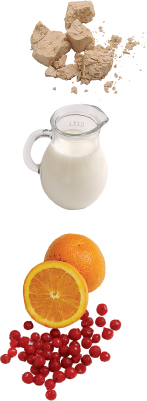
BENEFICIAL FATS
When your back pain is caused by joint ailments, it's recommended eating avocado and soy. Both foods, as with extra virgin olive oil, have properties that are destroyed by heat. They are especially good for joint ailments.
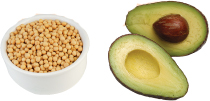
Vitamin D
This vitamin ensures the correct absorption of calcium and phosphorus necessary to keep your bones, joints and nervous system healthy. It's a vital nutrient for the prevention and treatment of osteoporosis. Vitamin D is also referred to as calciferol and can rightly be called “the sunshine vitamin”, since the body, in a sunny climate can manufacture this nutrient from the sun shining on the skin due to the presence of colecaciferol or provitamin D 3 . Vitamin D can be found in eggs, butter, liver, cod liver oil and whole milk.
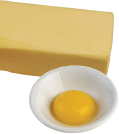
Vitamin E
It is also called “alpha tocopherol”, this vitamin is fat-soluble. Vitamin E is a powerful antioxidant, protecting your cells from oxidation, and neutralizing unstable free radicals, which can cause damage. This is done by the vitamin E giving up one of its electrons to the electron deficient free radical, making it more stable. It helps to relieve fatigue and contributes to muscular and skeletal health. It is found in raw vegetable oil, dried fruits, avocado and wheat germ.

Calcium
Calcium is needed for so many different functions in the body, from bones to blood clotting and function of muscles. Calcium rich foods include milk, cheese, yogurt, leafy green vegetables, sardines, wholegrain cereals, and calcium enriched soymilk.
OMEGA-3 FATTY-ACIDS
Ocean fish (salmon, sardines, codfish, and tuna) are rich sources of Omega-3-fatty acids, an important component for fighting arthritis. As an alternative to fish, you can use flaxseed or flaxseed oil.
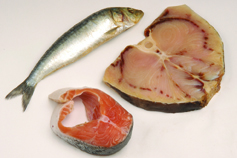
BROTH TO SOOTH JOINT PAIN
Boil thoroughly washed peeled skin of 3 or 4 potatoes, and drink this broth as if it were a soup, 2 times a day. It's a wonderful source of minerals.
Magnesium
Magnesium helps with formation of bones and teeth and assists the absorption of calcium and potassium. Where calcium stimulates the muscles, magnesium is used to relax the muscles. It is used for the muscle tone of the heart and assists in controlling blood pressure. Vital for the cellular function that helps the body to produce energy. Magnesium deficiency is related to other nutritional deficiencies, brought on by poor diets made up of frozen or processed foods. Found in green vegetables, bananas, wheat germ, fish, seaweed and dried fruits.
Potassium
Potassium is one of the electrolytes we all require to maintain health. It is needed for growth, building muscles and transmission of nerve impulses. It's a fundamental mineral to keep the back healthy and muscles strong. Can be found in fruit and garden vegetables, especially potatoes, cauliflower, tomatoes, bananas; it is also found in salmon, pork and other foods.
FOODS YOU SHOULD AVOID
When you are suffering from back problems it's best to avoid eating:
• Wholewheat grains, contain phytate, which prevents absorption of calcium, creating a deficiency of calcium in the body, putting the health of the bones at risk.
• Acidic foods and drinks that can provoke gastritis or gastric acid. The body, in order to compensate for excess acid, tends to use calcium from the bones to balance the pH acid in the stomach to make it more alkaline. It's best to avoid drinking: coffee, tea, cola drinks (all containing caffeine, which is acidic), alcohol and refined sugars.
• Excess dairy products, which for some people causes excess acid. In some cases it maybe best to include other foods rich in calcium other than dairy products.
• Excess of salty foods can also reduce the calcium in the body, especially for the elderly.
• Foods rich in oxalates (rhubarb, spinach, and beets) may decrease calcium absorption and retention, resulting in lower calcium levels in the body.

Comment about this article, ask questions, or add new information about this topic: